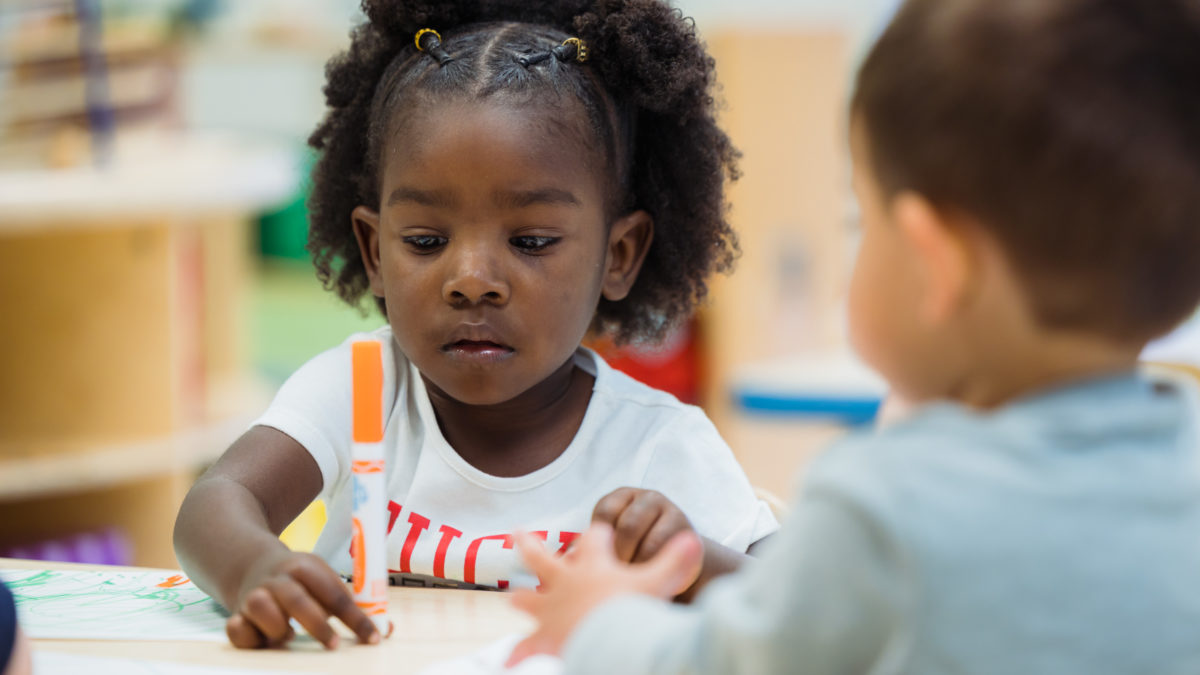Get to Know Your 3-Year-Old

As your child grows and matures, you’re likely noticing several new changes in their behavior. At 3 years old, your preschooler is beginning to understand their relationship with others, developing gross motor skills, and showing off new talents and interests daily.
The first 2,000 days of your child’s life are critical for their language, social-emotional, motor, and cognitive skills—the foundation of your child’s long-term growth.
What to Expect from Your 3-Year-Old
At the age of 3, your preschooler is probably learning many skills and changing nearly every day. By the time your child reaches the age of 3, their development falls into a few different categories.
Cognitive Development
By 3, children can recognize and identify nearly all common objects in photos or picture books. They can also understand more abstract concepts, such as opposites (big versus small or old versus new) or the concept of the number two. Although they might not know the word for every color yet, they’ll be able to match similar colors together when prompted.
Three-year-olds will also begin initiating relationships and playtime with their friends or by themselves. During this phase of their childhood, most 3-year-olds will imitate adult tasks, such as cooking or cleaning.
Language and Communication
If you have a 3-year-old, then you already know that they’re exceptionally good conversationalists.
By the age of three, most children can speak in complete sentences of three to five words and they can identify themselves and others in the conversation with ease. When speaking to others, they’re understandable and can usually respond with more than a yes or no answer.
At the age of 3, your child is likely asking you a lot of “why?” questions. During this part of your child’s development, providing them with plenty of patience and thought-provoking answers will help strengthen their language and communication skills.
Social and Emotional Development
By 3, most children are learning to contain and express their emotions. You’ll likely notice fewer tantrums or outbursts—and they’ll become more attuned to the feelings of those around them. You might notice your 3-year-old comforting a peer who is upset.
At this age, children also become more confident separating themselves from their parents—which makes the transition to preschool much easier. They will enjoy time spent with friends or other adults, and in most cases, will be comfortable being away from you.
Large and Small Muscle Development
Most 3-year-olds start to develop fairly good balance—and even though it may worry you from time to time, your child is likely running around, jumping, and playing with confidence and freedom. During this phase, they can climb ladders, use a slide, and run around obstacles.
As their fine motor skills continue to develop, 3-year-olds can make their own drawings from their imagination or copy someone else’s.
Supporting Your Child’s Development
As your child grows and develops, here are a few tips you can use to support their growth:
- Encourage your child to play with other children, which boosts confidence and independence
- Encourage your child to share stories and talk with you about what happened during their day
- Encourage your child to help with simple household chores, such as picking up toys
- Read plenty of stories to your child, making sure to point out objects in the pictures or explain new words
- Provide your child with crayons to experiment with drawing—show them how to draw circles, ovals, lines, and other shapes
- Practice counting with your child
- Play with puzzles together
- Listen to music together and dance
- Provide plenty of sensory experiences: Sand, fingerpaint, puzzles, markers, or crayons are a great place to start
- Spend time outdoors so your child’s gross motor skills continue to develop. Using their muscles is vital for long-term health—try the park, the backyard, or the playground
- Point out colors and numbers in everyday conversations
- Play ball together
We’re Here to Help.
If your child turned 3 or 4 years old by August 31st, it’s time to apply for preschool! One Place’s preschool programs serve more than 700 children annually and help provide a solid foundation for a lifetime of success.
